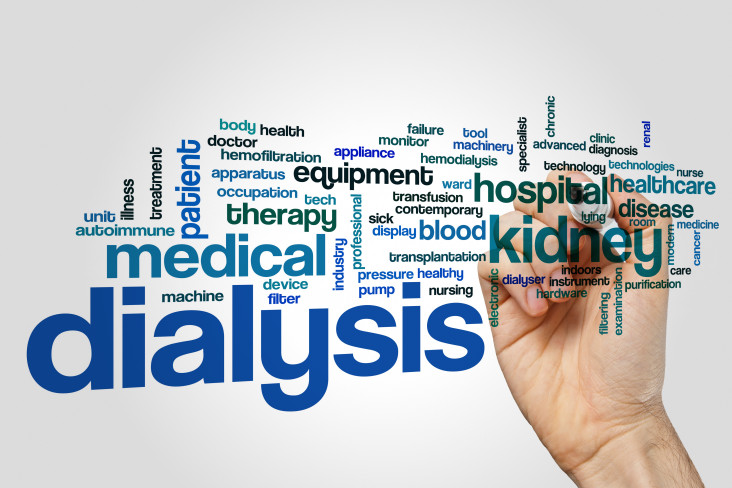
Nobody wants to depend on dialysis for their whole life, but some of us unfortunately do. Dialysis is a treatment for those with kidney failure as it helps your body perform functions typically done by healthy kidneys. Why, then, do people with diabetes also require dialysis?
Kidney failure is one of the most common complications if you have diabetes. Our blood glucose levels can become very high when we have diabetes because our bodies are unable to produce enough insulin, a hormone that helps control and regulate the blood sugar in our bodies. High blood sugar levels can cause damage to our kidneys over time. Therefore, people with diabetes have an increased risk of developing severe kidney disease.
Symptoms of diabetic kidney disease
So how can you tell if you have kidney disease when you have diabetes? Kidney disease from diabetes, or diabetic nephropathy, can occur long before you notice any symptoms. Thus, it is essential to attend regular yearly screenings for kidney disease. Common signs of diabetic nephropathy include increased urination at night, weight gain, ankle swelling, anaemia, nausea, or increased blood pressure.
Importance of dialysis
Our kidneys perform various essential functions, including filtering waste in our bodies and passing them out as urine, regulating minerals and nutrients in the blood, and creating hormones for red blood cells production and blood pressure regulation.
When our kidneys fail, our blood will not be cleaned properly and waste materials will build up in our blood. Additionally, our bodies will “retain more water and salt that it should, which can result in weight gain and ankle swelling” (National Kidney Foundation 2015).
Therefore, dialysis helps to do some of the things done by our kidneys, including:
- purifying our blood by removing waste, salt, and excess water
- control blood pressure
- maintaining safe levels of chemicals in our blood and prevent blood poisoning
Types of dialysis
1. Haemodialysis
Haemodialysis is the most common type of dialysis, whereby an artificial kidney (a haemodialyser) will remove excess waste and water from your blood. Two needles are inserted into your bloodstream via a surgically-cut vascular access to remove blood and pump purified blood back into your body.
Haemodialysis treatments are typically performed three times a week, with each session lasting three to four hours, depending on your body size and the amount of waste in your body.
2. Peritoneal dialysis
Peritoneal dialysis involves permanently inserting a catheter into your abdomen to fill and drain a special fluid from it. The fluid can stay in the abdomen for four to six hours to filter waste from your blood before being drained out. It can be performed by yourself on an average of four times a day.
There are two main types of peritoneal dialysis – continuous ambulatory peritoneal dialysis (CAPD) and automated peritoneal dialysis (APD). CAPD requires three to four fluid exchanges daily, while APD is done throughout the night while you sleep as a machine attached to you assists with the fluid exchange.
Risks and complications of dialysis
While dialysis can help save your life, there are multiple risks attached to them as well.
Before and during haemodialysis, our skin covering the vascular access needs to be cleaned to prevent infection. There is also a possibility of blood clotting during treatment. Other side effects of haemodialysis include nausea, hypotension, muscle cramps, headaches, and depression.
Those on peritoneal dialysis also have an increased risk of developing infections in the abdominal cavity where the catheter is inserted in. Furthermore, you might experience a weakening in your abdominal muscle, high blood sugar, and weight gain.
Does dialysis cure kidney disease?
Unfortunately, no. Unless you are able to get a kidney transplant, most people have to depend on dialysis for the rest of their lives. Therefore, it is important, especially for diabetic patients to look after your kidneys.
One way to ensure that you maintain healthy kidneys and avoid kidney failure is to get a regular screening with your general care physician or a nephrologist, a doctor who specialises in kidney care. These doctors will help you plan kidney management and treatment solutions.
Your diet also plays an important role in regulating blood sugar levels. Therefore, you can also work closely with a dietitian to plan your diet.
You can look for any of these doctors easily and readily on GetDoc. Schedule an appointment today to maintain better diabetes prevention and management!
_______________
Want to gain personalised tips to plan your diet? GetDoc is organising a diabetes health talk on 14th April 2018. Hear from endocrinologist, Dr Vivien Lim, and dietitian and nutritionist, Ms Liow Min Choo, on diabetes prevention and management, and receive valuable and realistic diet plans from our expert speakers! Free for the first 20 participants. Register here now!
References
by waiyee
Film junkie. Matcha drinker. Dog lady. Will write for food. View all articles by waiyee.







